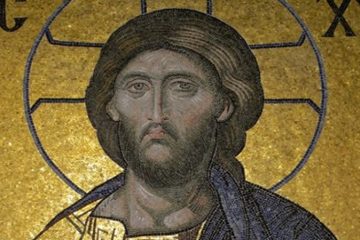Protopresbyter Themistoklis Mourtzanos
‘The beginning of quietude is to repel the blows of the demons, because they trouble you to the depths of your heart. The end of quietude is not to fear turmoil, but to be indifferent to it’ (Saint John of the Ladder).
Turmoil is a common phenomenon in our life. Untroubled people are often thought to be unfeeling, detached and inward-looking. People who become agitated, however, are deemed to have emotions. They’re people who live and strive, even if their agitation brings its own difficulties. But there’s an obvious question: what makes us agitated?
In the ascetic tradition of our faith, turmoil is caused by our thoughts. These stem from other people’s attitude towards us, from doubt and worry over the future, from fears and phobias, from wanting what we think’s ours and which we haven’t found, from the misgivings we experience, as well as from the fact that we’re unable to find joy and meaning in life. The devil finds ways to agitate us. He reminds us of what we haven’t got or what we’d like to achieve and can’t. He makes us look at our world and worry over it. He makes us want to have ourselves and our personal opinions as criteria. He wants us not to depend on those who love us, particularly the Church, but rather to see things on the basis of whatever our mind shows us. As a result, we find no peace.
Our thoughts make us act in a prejudicial manner. We construct scenarios in our mind. We want our time to be filled and can’t imagine ourselves going through life in the tranquil assurance of God and his will. The calmness of prayer and consideration for others, which is a way of asking forgiveness. When our ego is the key, how do we feel, what do we believe, how can we listen to others? How can we tell what they’re saying and what they’d like to say to us? How can love operate? Of all the things we see and hear, what features are true and which ones trap us is in endless games of grievance, fear and, in the end, agitation? Why should we be forever on the defensive, treating other people as our enemies? Even if they do feel that way, might it not be worth a smile, a kind word, a calm approach, a question as to what it is about you that troubles them, expressed patiently? A question to our confessor? A great deal of prayer as the antidote to turmoil?
Life today is filled with tumult. Those who shout most, who ring the alarm bells loudest, who find the most outrage in every situation feel very satisfied, because, apparently, they’re not easily fooled, nor do they submit to the interests which govern the world. People who are truly spiritual, however, entrust themselves to Christ, who was abandoned to the wickedness of the world but overcame it with love and his resurrection. Truly spiritual people exercise judgment, but don’t condemn. They remain detached from the tumult because they know that the last word lies with God. They trust the Church, despite the errors and shortcomings of the people in it, in the knowledge that obedience saves. And they strive spiritually so that at the heart of their relations with other people is the truth which brings peace to the heart, for ‘we belong to the Lord’ [Rom. 14, 8].
Source: pemptousia.com




0 Comments